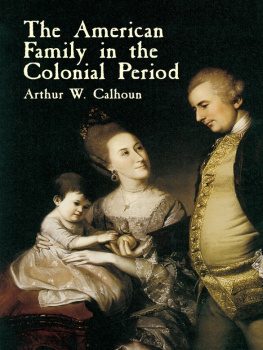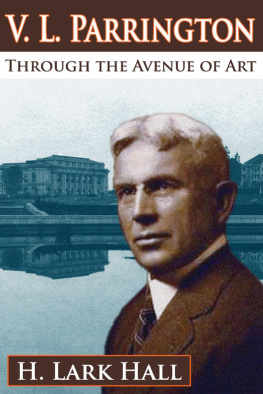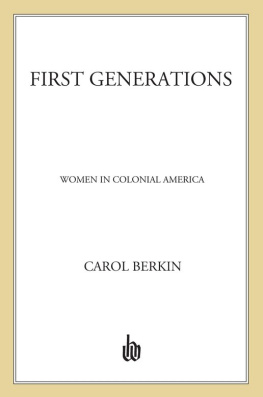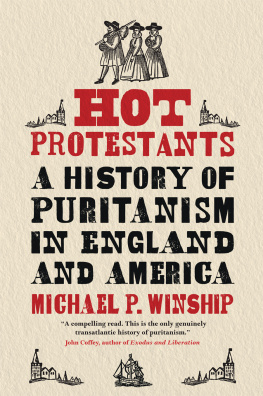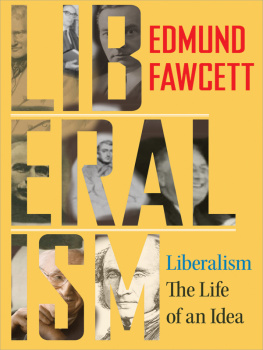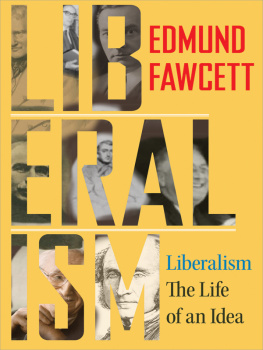Liberalism,
Puritanism
and the
Colonial Mind
Liberalism,
Puritanism
and the
Colonial Mind
Main Currents in American Thought,
Volume I
Vernon Louis Partington
With a new introduction by Bruce Brown
Originally published in 1927 by Harcourt, Brace and Company. Inc.
First published 2011 by Transaction Publishers
Published 2017 by Routledge
2 Park Square, Milton Park, Abingdon, Oxon OX14 4RN
711 Third Avenue, New York, NY 10017, USA
New material this edition copyright 2011 by Taylor & Francis.
All rights reserved. No part of this book may be reprinted or reproduced or utilised in any form or by any electronic, mechanical, or other means, now known or hereafter invented, including photocopying and recording, or in any information storage or retrieval system, without permission in writing from the publishers.
Notice:
Product or corporate names may be trademarks or registered trademarks, and are used only for identification and explanation without intent to infringe.
Library of Congress Catalog Number: 2010045084
Library of Congress Cataloging-in-Publication Data
Parrington, Vernon Louis, 1871-1929.
[Main currents in American thought]
Liberalism, Puritanism and the colonial mind / Vernon Louis Par-rington.
p. cm. -- (Main currents in American thought ; v.1)
Includes bibliographical references and index.
Originally published as: Main currents in American thought. Poole [England] : New York : Harcourt, Brace and Co., 1927.
ISBN 978-1-4128-1868-1 (v. 1 : acid-free paper) 1. American literatureHistory and criticism. 2. United StatesIntellectual life. I. Title.
PS88.P33 2011
810'.9--dc22
2010045084
ISBN 13: 978-1-4l28-1868-1(pbk)
TO THE MEMORY
OF
J. ALLEN SMITH
SCHOLAR TEACHER DEMOCRAT GENTLEMAN
Omnium Amicus erat
qui
Justiciam amant.
CONTENTS
New England a product of old-world custom and institutions, modified by new-world environment. Emergence of two classes: yeomanry, gentry; and two ideals: Puritan and Yankee
PART I
The Puritan Heritage1620-1660
PARTT II
The Twilight of the Oligarchy1660-1720
The spread of provincialism and the consequences. Formalism in the church; superstition. The psychology of the Salem outbreak. The muddling of the oligarchy and the end
The middle eighteenth century undistinguished, yet it created the individualism that was the source of a new democratic psychology
PART I
The Mind in the Making1720-1763
PART II
The Awakening of the American Mind1765-1783
PART
I The Agrarian Defeat1783-1787
PART II
Political Democracy Gets under Way1787-1800
Bruce Brown
"Ideas are not godlings that spring perfect-winged from the head of Jove; they are not flowers that bloom in a walled garden; they are weapons hammered out on the anvil of human needs. "
Vernon Louis Parrington
THE FIELD AT THE FAIRGROUNDS in Guthrie, the capital of the Oklahoma Territory, was frozen but free of snow for the kickoff of the big college football game on New Year's Eve 1897. The contest, which was actually the prelude to the day's main event, the Territorial Intercollegiate Oratorical Contest, pitted the University of Oklahoma against another Oklahoma school, Kingfisher College.
It was the fledgling University of Oklahoma football team's first game that far from home, and during the early part of the contest they had some tough sledding. Oklahoma end Bill McCutcheon was being punished particularly hard by a heavy-set Kingfisher tackle. "He hurt me every time he hit me," McCutcheon recalled later. Closer inspection revealed that McCutcheon's opponent was wearing armor: Beneath his jersey he had concealed an elbow of stovepipe over each shoulder and arm.
Although McCutcheon's opponent was forced to shed his extra gear, Kingfisher continued to dominate Oklahoma, and carried an 8-6 lead to the bench at halftime. There is no record of what the Oklahoma coach told his beleaguered team as they warmed themselves during the break, but its results were evident during the second half in classic college football fashion. The Oklahoma offense came alive, eating up the field with plays that called for the tackles and ends to cross-block their opposite numbers while the ball carrier swung through the gap boosted by supporting backs, for in those days, football offenses relied as much on pushing from behind as blocking in front.
Midway through the second half, the game was interrupted by the Logan County sheriff, who had never seen a football game before, and supposed the action on the gridiron to be a brawl in progress. It took the appeals of several notables present, including University of Oklahoma President David Ross Boyd (Oklahoma was by then leading), before the sheriff would let the game be completed. Finally relenting, he gave the affair a Wild West touch by firing his gun over his head to restart the contest, prompting the spectators to respond with the appropriate rodeo cries: "Hold that steer!" "Ride 'em cowboy!" "E-yip-eeeeeeee!"
Out on the playing field, the flavor was not so much Red River as Crimson Wave. Although Oklahoma's young Harvard-educated football coach had chosen not to play in this game himself, the Sooners still bore the strong mark of Harvard football, that rough rugby/soccer amalgam which won first the Ivy League colleges and ultimately all of America away from traditional soccer. Striding the sidelines in a tweed suit and tie, the Oklahoma coach exhorted his men. They were an odd crew, composed of a professional baseball player, a Chickasaw Indian, some local farmers and a smattering of University of Oklahoma students, but now the drilling he had put them through paid off and they won handily by the score of 17 to 8.
This was the first of many hurrahs for both University of Oklahoma football and its tweedy coach and English professor, Vernon Louis Par-rington. During the four years he coached the Sooners, Parrington, then a darkly handsome young man in the Robert Louis Stevenson mold, only lost twice, and one of those games turned on what was later revealed to be an illegal drop kick by the University of Arkansas Razorbacks, according to Harold Keith's Oklahoma Kickoff. After shutting out the last four opponents Oklahoma faced at the close of the 1900 season, Parrington retired forever from football coaching with what is at this writing still the second highest winning percentage in the history of Sooner football after Bud Wilkinson.
Parrington's explanation for the move was that he wanted to devote more energy to the teaching of English, but his motives, like everything else about him, were far from simple. A voracious reader who actually hated Harvard and the old Brahmin-dominated culture it represented, Parrington also wanted more time for personal questing. As William Allen White recalled in his Pulitzer Prize winning autobiography, Parrington was part of a crowd of young fellows "too proud for pool, too wicked for prayer meetings, too lazy for baseballalthough Vernon Parrington pitched a mean outcurve for the Emporia Brownstoo sophisticated for the local poker game, and too young and full of vision to let the world go by without trying to understand it."


